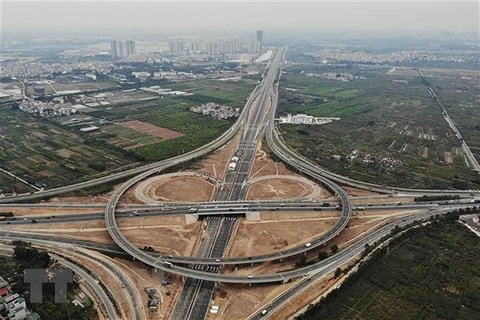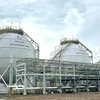 Do Ngoc Quynh, secretary general of the Vietnam Bond Association, says market participants must fully comply with the regulations. (Photo vneconomy.com)
Do Ngoc Quynh, secretary general of the Vietnam Bond Association, says market participants must fully comply with the regulations. (Photo vneconomy.com) Hanoi (VNS/VNA) - Vietnam should set tight rules to diminish the negative impact of corporate bond products, while constructing flexible regulations for bond issuance to effectively manage and supervise the corporate bond market, according to insiders.
“Ensuring the healthy development of the bond market and the capital market requires the synchronous development of all components participating in the market, including State management agencies, businesses, and investors,” said Do Ngoc Quynh, secretary general of the Vietnam Bond Association, during an online seminar on corporate bonds held on August 16.
“While developing the equity market, market regulators must ensure the effective operation and necessary management over the market. If the management is too tight, the market cannot develop, but if the regulations are too loose, a crisis can occur, thus management agencies must always observe and adjust the policy as needed.”
He said that businesses issuing bonds publicly would have wider access to investors but also have to bear greater responsibilities, such as transparent information disclosure, and ensuring credit ratings.
If they choose to issue bonds privately, the access to investors will be narrower and the costs of capital higher.
“Market participants must fully comply with regulations. Any enterprise that publishes false information, or lacks transparency will be fined strictly,” he said.
According to banking expert Nguyen Tri Hieu, in the US, the banking system is divided into two segments, commercial banking and investment banking.
“Only investment banks are allowed in bond issuance. While in Vietnam, banks are multi-functional as some can be commercial banks and investment banks at the same time,” Hieu said.
He said support of Vietnamese banks for the corporate bond market is crucial as they provide technical support for eligible businesses to issue bonds.
"They also supported the distribution of the amount of bonds. Thanks to their support, in the first 6 months of this year, despite the pandemic, the amount of corporate bonds grew strongly,” he said.
“But bond investors should note that banks are just the distributors of bonds and do not guarantee the safety of investment in corporate bonds. They enjoy service fees from issuers without being responsible for the repayment capacity of the issuers, meaning that they do not guarantee that bond issuer will pay the interest and principal on the due date.”
He added that most of the current amount of bonds on the market were unsecured or secured by stocks, which fluctuate according to the market.
In the case of other collateral assets, investors do not have the power to seize those collateral assets, like banks do. Even when the business goes bankrupt, the collateral assets will be paid in order of priority, firstly taxes to the Government, then wages for employees and paying off bank debts and finally the buyers of the bond.
"Now the corporate bond market has many potential risks as the COVID-19 pandemic makes businesses unable to operate and have to borrow money. And those risks are endured by bondholders," Hieu said.
According to Tran Van The, vice chairman of the Board of Directors of Deo Ca Group, which is involved in infrastructure investment, the total investment of the group in traffic projects is currently over 60 trillion VND (2.6 billion USD).
“In the period of 2021 - 2030, the Government is determined to complete 3,800km of highways, which requires enormous medium and long-term capital needs.
Therefore, Deo Ca Group must develop a long-term strategy to restructure our capital, and we have taken into account the plan to issue corporate bonds in September and October 2021.
“This helps us up capital to the transport projects under the form of public–private partnerships (PPPs), such as Cam Lam - Vinh Hao project, a component project of the North - South expressway with a total investment of 9 trillion VND, or two other projects of Huu Nghi-Chi Lang project worth 7.5 trillion VND, and Dong Dang-Tra Linh worth 12 trillion VND," The said.
“The capital demand is very large, in the process of issuing bonds, we still encounter some obstacles in terms of policy as well as practice.
“For example, according to Article 6, Decree 28/2021/ND-CP dated March 26, 2021 stipulating the financial management mechanism of investment projects under the form of public-private partnership, PPPs project enterprises are only allowed to issue non-convertible bonds under the form of private placement. This regulation has restricted businesses,” The said.
“We recommend that businesses should be allowed to issue corporate bonds to the public, even to issue international bonds, because the sector of transport infrastructure investment requires extremely large capital, suitable for international bond issuance."
The added that there should be an infrastructure investment fund specialising in lending capital with preferential interest rates, creating confidence for investors to buy bonds of transport infrastructure enterprises./.
























